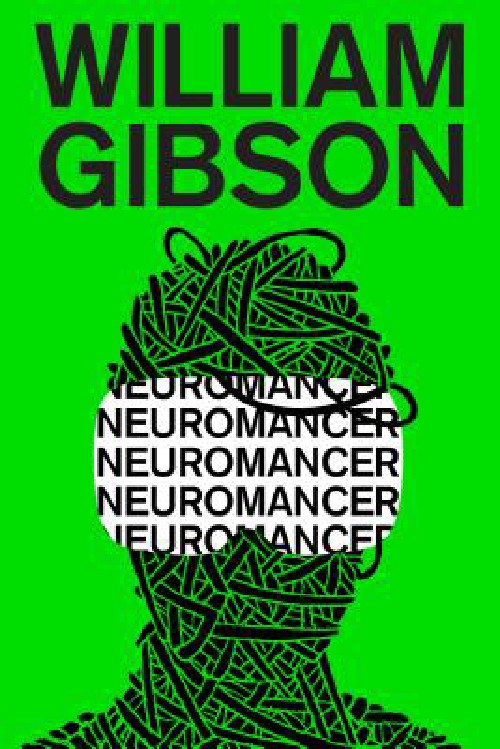Yesterday I was going through my RSS feeds and I read Charity Major’s latest blog post. It frustrated me so much that I am going to try and sort my frustrations here, in a sort of old-school blogging dialogue.
Up front I’ll position myself: I worked at Honeycomb for 3 years, and had quite a few calls and conversations with Charity. This post is written out of respect for her and based on knowing that she likes to be challenged in her thinking. That was an enjoyable aspect of working at Honeycomb; you could push back against leadership, and often to positive results. I left Honeycomb earlier this year, but I still have quite a few friends there and I think that the product is fantastic. I saw first-hand that Charity and Christine Yen (the founders) have put a lot of work into building a company that aligns with their principles.
Charity’s post is titled “Thoughts on Motivation and my 40-Year Career” and as she says up front, it’s memoir-esque. Embedded in her narrative there are some frustrating assertions and omissions that I find to be very common in the tech industry view of the world and I’d like to highlight what I see, as a counterpoint to her post.
The first thing that jumped out to me in the post is that it is internally self-defeating. Here is an assertion:
As a species we are both individualistic and communal, selfish and cooperative, and the miracle of capitalism is how effectively it channels the self-interested side of our nature into the common good.
Here is the very next paragraph:
Late stage capitalism, however, along with regulatory capture, enshittification, and the rest of it, has made the modern world brutally unkind to most people.
The “common good” is how we describe things that bring benefit to everyone. I can’t square the circle of how capitalism in one paragraph is turning greed into good, when in the next paragraph the same system has made the world “brutally unkind to most people.”
The next section, titled “If You Want to Change the World, Go Into Business” has the same issue. Here are two contiguous sentences:
For better or for worse (okay, mostly worse), we live in an age where corporate power dominates. If you want to change the world, go into business.
Logically, if the corporate world dominates things for the worse, then the suggestion one should go into business is an invitation to make the world worse. You are technically changing the world, but it’s hard for me to make sense of how that is “work worth doing” which is what Charity believes most people want to do (and I don’t disagree with her).
If I ignore the literal reading of the words, I do understand that her belief is that if corporate power is what is harming the world, then people with strong principles and good ethics are needed to reduce the harm.
What I don’t understand is how on earth one can have any understanding of complex systems theory and believe that.
The argument
As best I can make sense of the argument in the post (and I frame it this way to make clear I’m not trying to misrepresent her words; I welcome clarification), she is asserting a few things:
- Jobs can be sources of meaning and liberation
- Corporations are the dominant power source in the world
- Having more ethical, principled people in business is good
- So if you are someone looking to do meaningful work, you can go into business
- This will improve the world
Her evidence for this argument seems to be that it’s proven true for her. Well, at least point 1 has.
As I make sense of the post, Charity is A) using her biography and career path as B) an argument about how the systems of the world work and can change.
And A, so far as I can tell, has absolutely no correlation to B.
Furthermore, it was frustrating to me to read the post—knowing how smart and curious Charity is—and not see any attempt to grapple with the systems that control the context that she’s thinking about, or how power impacts people in those systems.
Adding some systems analysis
The issue that felt most frustrating in Charity’s post was the naming of various systems (jobs, corporations, capitalism) without any curiosity about why they work they way they do, even as the post attempts to make an argument for how to improve those systems. So I’m going to attempt—in good faith and generous reading—to tease out the assumptions in the post about the systems we all live in, with the hope of showing how the assumptions don’t hold up to scrutiny, because I believe if you grapple with the systems we live with accurately, you might come to different conclusions about the problems that are shaping the world and the responses necessary to address them.
System One: Work
From the section titled “For Me, Work has Been a Source of Liberation”
It’s very uncool these days to love your job or talk about hard work. But work has always been a source of liberation for me. My work has brought me so much growth and development and community and friendship. It brings meaning to my life, and the joy of creation. I want this for myself. I want this for anyone else who wants it too. I understand why this particular tide has turned. So many people have had jobs where their employers demanded total commitment, but felt no responsibility to treat them well or fairly in return. So many people have never experienced work as anything but a depersonalizing grind, or an exercise in exploitation, and that is heartbreaking.
The first system that is very fuzzy in this post is “work.” You can see it in the first sentence above: “love your job or talk about hard work.” At the end of the section, a further clarification is offered “I worked a lot harder on the farm than I ever have in front of a keyboard, and got a hell of a lot less for my efforts.”
Two things are being conflated here. The first is “labor,” meaning the act of work itself. Writing code is labor, planting a garden is labor, assembling a car is labor, attending to a patient in a hospital is labor, washing your family’s laundry is work. Humans have worked since the beginning of time, since the mythical cave people days (or whatever our early evolutionary existence actually looked like). Importantly, labor happens in all sorts of contexts, whether or not a corporation is involved.
The second concept being conflated in “work” is the system many of us in the modern world operate under broadly called “waged labor.” This is the system wherein I trade certain types of labor for money, and in so doing have economic means to survive in the world. Waged labor is distinct from labor; you can do a lot of “work” without having a job.
This conflation is frustrating because it means that the same word is used to make assertions that don’t otherwise logically cohere. When Charity writes “I worked a lot harder on the farm than I ever have in front of a keyboard, and got a hell of a lot less for my efforts.” she is actively conflating subsistence labor that she had to do because someone else made her do it with paid employment that she pursued ostensibly of her own volition. These are not the same things!
With the two separate concepts of work vs waged labor in mind, let’s look at this these sentences again:
So many people have had jobs where their employers demanded total commitment, but felt no responsibility to treat them well or fairly in return. So many people have never experienced work as anything but a depersonalizing grind, or an exercise in exploitation, and that is heartbreaking.
What is being described here is the waged labor system, not all human work. In the second sentence, you could add the word “paid” before the word “work” and it would be slightly more accurate.
The question that is completely ignored in this post is “why have people experienced this?” I would ask more questions: Do we believe that people were in jobs that treated them so poorly by choice? Did they just not know better? Shouldn’t they have chosen better jobs, where their work was liberatory and meaningful? Why didn’t they do that?
Why exactly do so many people in the US and around the world have to work jobs that make them miserable and unfulfilled?
System Two: Capitalism
Later in the post, there is acknowledgement of capitalism as a system. In the section titled “We Have Lived Through the Golden Age of Tech” Majors asserts:
Late stage capitalism, however, along with regulatory capture, enshittification, and the rest of it, has made the modern world brutally unkind to most people.
It’s honestly hard for me to extract a working definition of capitalism from the overall post, so I’m having to infer a bit. I believe if I define capitalism as “an economic system prioritizing markets as the main mechanism for assigning value to products, goods, and services”, that’s probably not going to be too contentious. Where I start to get a bit more contentious is in determining what related systems are necessary to ensure capitalism is viable. My understanding, (and this is all me, nothing in Charity’s post) is that capitalism is also dependent on shared currency, which has (until like 10 years ago with the advent of crypto) been dependent on a government to exist.
(This high level definition elides a lot of necessary context, apologies to everyone I offend for the simplification)
Under capitalism, nearly every aspect of life is valued by money, and money is obtained in a variety of ways. For the vast majority of people living in the US, money is obtained through waged labor, AKA jobs.
With this almost hilariously simplistic explanation, we already start to answer the question of “why do people have jobs that suck?” The answer is they want to live; they want housing, and food, and healthcare, and maybe vacations and pleasure, and those things are obtained with money, which is currently broadly available only via waged labor.
As someone trying to grapple with systems, to “solve systems problems” as it were, I would think that the assertion “So many people have had jobs where their employers demanded total commitment, but felt no responsibility to treat them well or fairly in return.” in conjunction with the assertion “For better or for worse (okay, mostly worse), we live in an age where corporate power dominates.” leads to some very obvious questions, namely why does the world work this way? And what the hell can we do about it? And with the rudimentary explanation I just gave above, one might also ask “where does the money come from, exactly, and why is it that corporations have the most of it?”
System Three: Government
For all of recorded human history people have found reasons to join together in common causes, but it requires a government and a legal system to produce the strange collections of people and money we refer to as “corporations”. Government and business are intricately related, and how business works is in large part a function of the system of rules they are bound by, which are mostly created by governmental entities.
Businesses are also deeply reliant on government because for most of history governments have been source of money. This is a reciprocal system—just because a government creates money does not mean it has to be used for “business”. There’s a high-level system at work: a government needs to support itself, so it needs to generate tax dollars. In order to generate tax dollars, it needs the money to have value and circulate amongst people. So modern governments have found that supporting large-scale markets where people and businesses trade services and goods is beneficial for the nation.
The US government has also built a system where new money is introduced into the system through financial systems that incentivize economic activity (treasuries) and are business-friendly. They do not print money and give it out to citizens, they create money through financial instruments that benefit the entities in the country that already have money.
This arrangement of the world also means that governments have a lot of power over businesses, because the government is the source of the money the businesses exist on, and the definer and enforcer of the rules that make business possible.
Tying it all together
Towards the end of Charity’s post is a set of sentences that I found very difficult to make sense of:
Once upon a time, if you had strongly held ideals and wanted to change the world, you went into government or nonprofit work. For better or for worse (okay, mostly worse), we live in an age where corporate power dominates. If you want to change the world, go into business. The world needs, desperately, people with ethics and ideals who can win at business.
As best I can make sense of it, the argument is in some previous era, governments and nonprofits were the drivers of (positive?) change. But that era is over, and now the drivers of change is business. And yes, most of that change is bad, but that’s because the people who go into business have no ethics or ideals.
There is no evidence or backing offered for these pretty critical assertions.
Here is how I understand the ways that the systems above all relate to each other:
Governments define the overall system, because they print money and create the rules and systems that make business possible. Businesses grow and accumulate capital because the government has created rules and incentives that encourage economic activity. And because the government (especially in the US) has decided that markets are the best way to distribute and price nearly everything necessary for survival, in order for citizens in the country to survive, they need to obtain money, which requires them to trade their labor for money.
This, as best I understand it, is a fairly accurate description of the broad systems relevant to the context Charity is writing about.
To try and think through her assertion that “to change the world, go into business,” though, I think it’s helpful to bring into the discussion another thing her post gestures at but does not grapple with at all: Power.
Who makes the rules?
The lack of any grappling with how power operates in Charity’s piece was the starkest omission to me.
Even in her narrative, there is acknowledgement that in her career, acquisition of power has increased her agency, and this opened up the door for finding more meaning in work. That is great, I absolutely believe her that it’s true, but it’s not really an argument for how this can be true for more people, nor does it evidence any curiosity about the systems that determine why it is or is not true for a broader set of the population.
So, if one believes that despite how unpopular it is to say, jobs can be meaningful, I would think that the somewhat obvious next question is “why aren’t most people able to get meaning out of their jobs?” Charity’s post evidences no curiosity about that.
From my perspective, that’s because her position in the system has changed, and now she has just enough power in the system to be able to ignore that parts of it that are inconvenient to her argument.
In the US, employers have immense power over employees. Access to healthcare is tied to work (and a bill was just signed making that even more explicit). Employees have almost no power to determine the rules for how work is shaped. The vast majority of work in the US is at-will, meaning no matter how much a company or executive talks about belonging and caring and doing things differently, the company has a contractual right to fire any employee at any time for any reason. (There are exceptions to this. If someone is a founder, they own a significant enough stake in the company that it can’t just outright fire them. The other big exception is if you work in a unionized company, because then you and your colleagues have the right to negotiate the terms under which you are employed).
The fact that people exist in a world where having a job is not optional means they are required to subject themselves to the power of corporations. But as we saw above, corporations exist only because governments allow them to. There is a direct power relationship that business owners may not like, but exists none-the-less.
And that means if—as Charity says—we live in an age where “corporate power dominates,” that is because the rules are set up to allow that to happen. Corporate domination did not arise from nothing; humans changed laws, defined rules, and built regulations that allowed this to happen.
Corporate domination in the world is a result of human decisions and systemic changes. So if that corporate domination is causing widespread harm and misery, one might wonder if other human decisions could be made; if the system could work differently.
Conclusion
Charity is really smart, and is absolutely putting in the work at Honeycomb. I 100% believe her that she finds meaning and liberation in her work. And Honeycomb does some cool things—like being the only US corporation to have a non-executive employee on the company board. These things are important and I don’t want to dismiss them.
But they have basically no impact on the system at large. The system is so much bigger than one company with a few hundred employees. One company doing “good at business” does not actually impact the way that business works to address the issues of work being a site of misery, does not impact the domination that corporations have in our lives.
Towards the end of her post, Charity states her hopes:
I hope, perhaps naively, that we are entering into a new era of rebuilding, sadder but wiser. An era of building institutions with accountability and integrity, institutions with enduring value, that we can belong to and take pride in… not because we were coerced or deceived, not because they were the only option, but because they bring us joy and meaning. Because we freely choose them, because they are good for us.
I was a bit astounded reading that paragraph. Because right now, in July 2025 when she published this post, bills are being passed that will increase inequality despite it already being worse than it’s ever been in the US. The institutions of law enforcement and the US military are being used to round up non-white people around the country, regardless of their citizenship status or community connections. Trans people are watching as many states and the federal government attempt to deny their right to exist in any form. Corporations are so excited about shiny new technology that they are rapidly reversing what little progress has been made in the past few years to transition our energy system into something that won’t destroy the planet. The people in charge of the government—the system that corporations are dependent on—deny science, deny reality, and are actively working to destroy the economy that corporations rely on to make the money machines work.
Charity’s post frustrated me because it’s so disconnected from reality. Lots of people, in business, government, academia, and elsewhere want to change the world and impact it for good. But many other people could give a shit about the common good and a better future. And those people—the people who are “sycophants and psychopaths” in Charity’s framing—aren’t naive about the world or how it works. They have seized power and are using it for whatever ends they believe will profit them.
It feels worse than naive to ignore this. It feels willfully malicious. It feels, to me, like a self-serving framing that ultimately excuses one from engaging with the actual systems of power that might truly make the world better.
It feels bad to only critique, so I want to include my personal positions in this whole dialogue. I think accurately naming and understanding the system is useful because doing so makes it easier to explore the full range of possibilities available to us. We live in a world that makes nearly everyone feel precarious and anxious about their survival. I personally believe that’s because “as a species we are both individualistic and communal, selfish and cooperative, and the miracle of capitalism is how effectively it channels the self-interested side of our nature” into a belief that survival is a zero-sum game. I believe that the systems leading to this horrible reality are contingent, and can be changed, and I believe that there are so many better futures still available to us.
I understand that most people in the US suffer at work because since Reagan undid much of the labor protections that existed in the 1980’s, corporations have held all the power to set wages and define how jobs look. I know there’s a rich set of literature connecting the structural oppressions of patriarchy, racism, ableism, and protestant-work-ethic mythology to this system, as a way of making people feel that other workers are to blame for their suffering, rather than the bosses who control the money and hold all the power.
I also believe all of this is not fore-ordained, and could be changed. I believe the rules can be different, that work can be made meaningful, that precarity is not a requirement for civilization. We’re just going to have to find the political will to create that world.
I believe that finding the political will starts with accurately understanding the world, and that means we have to push back on power, in all forms, including and maybe most importantly our ever-present power to delude ourselves about the world we live in right now.
I find that these beliefs lead me to find meaning in a broad variety of work, and I believe that meaning can be made available to everyone.



